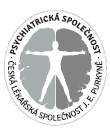Česká a slovenská psychiatrie

Časopis
Psychiatrické společnosti ČLS JEP
a Psychiatrickej spoločnosti SLS
souborný článek / review article
MOŽNOSTI A MEZE PSYCHOTERAPIE U BIPOLÁRNÍ PORUCHY
POSSIBILITIES AND LIMITS OF PSYCHOTHERAPY IN BIPOLAR DISORDER
Látalová K.1,2, Praško J.1,2,3
Klinika psychiatrie LF UP a FN, Olomouc1
Centrum neuropsychiatrických studií, Praha2
Psychiatrické centrum Praha3
Centrum neuropsychiatrických studií, Praha2
Psychiatrické centrum Praha3
SOUHRN
Průběh bipolární afektivní poruchy je charakterizován častými relapsy které jsou střídány remisemi. Základem léčby všech forem BAP je farmakoterapie. Ačkoli máme k dispozici řadu farmak, která vykazují velmi dobrý tymostabilizační efekt, dlouhodobě se daří stabilizovat pouze okolo 60 % pacientů. Navzdory pokrokům ve farmakoterapii do jednoho roku od akutní epizody zrelabuje 40 % pacientů, 62 % do dvou let a 73 % do pěti let. Opakované ataky nemoci pacientům výrazně narušují jejich každodenní život, slábnou jejich psychosociální schopnosti a celkově se stávají náchylnějšími k dalším relapsům. Zdá se, že slibnou cestou je pro posílení remise spojení farmakoterapie s psychoterapií nebo psychoedukací. Mezi hlavní cíle psychologických intervencí u bipolárních pacientů patří prevence relapsů, úprava špatných vzorců chování a psychosociálních funkcí. Výsledky randomizova-ných pokusů s psychosociálními intervencemi: psychoedukací, rodinnou terapií, kognitivní terapií a terapií interpersonálních rytmů potvrzují, že tyto přístupy posilují stabilizační efekt farmak.
Klíčová slova: bipolární afektivní porucha, psychoterapie, psychoedukace, kognitivní terapie, terapie interpersonálních rytmů, rodinná terapie.
SUMMARY
Látalová K., Praško J.: Possibilities and Limits of Psychotherapy in Bipolar Disorder
Bipolar affective disorder runs a natural course of frequent relapses and recurrences. Treatment of the illness has consisted mainly of pharmacotherapy However, we have many drugs with good mood stabilizing effect, only about 60% of patient are stabilizated for long term period. Despite considerable advances in pharmacotherapy, about 40% of patients with bipolar disorder are reported to relapse within 1 year, 60% over 2 years and 73% over 5 years. Repeated recurrent episodes are highly disruptive to the patients' functioning in everyday life, with such poor psychosocial capacity itself becoming a vulnerability factor for more frequent relapses. One of the promising way how to enhance stability of remission seems to be combination pharmacotherpapy and psychoeducation or psychotherapy. The main challenges for psychological treatments for bipolar disorder are preventing relapse, modyfying dysfunctional attitudes, and improving psychosocial functioning. Randomized controlled trials of psychosocial interventions, such as psychoeducation, family intervention, cognitive therapy and therapy of interpersonal rhythms indicate that these approaches augment stabilizing effect of drug treatment.
Key words: bipolar affective disorder, psychotherapy, psychoeducation, cognitive therapy, therapy of interpersonal rhythms, family therapy.





